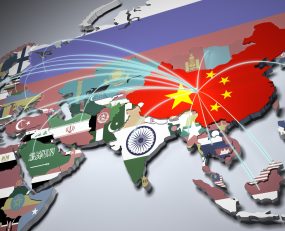
Supply chain management has become very political recently.
An example is the speech by President Xi Jinping, at the ‘International Forum on Resilient and Stable Industrial and Supply Chains’ in Hangzhou on Tuesday. Addressed to an audience of senior managers from Western companies with significant operations in China as well as politicians from nations in South East Asia and South America, Xi stated that “China will unswervingly ensure that industrial and supply chains are public goods in nature, take concrete actions to deepen international cooperation on industrial and supply chains…China is willing to work with other countries to seize the new opportunities presented by the latest scientific and technological revolution and industrial transformation, and build a global industrial and supply chain system that is secure, stable, smooth, efficient, open, inclusive and mutually beneficial”.
As so often in Chinese politics it is hard to fully understand the meaning of what is being said, however it is widely being interpreted as a political message about Chinese economic and strategic policy. In response to American actions such as the ‘Chips Act’, China is looking to create supply chains that are insulated from American influence, constructed in collaboration with friendly nations. The latter seems to include Chile, Cuba, Indonesia, Pakistan, Argentina and Serbia, who with China, at the conference put-forward a proposed initiative called the ‘International Cooperation on Resilient and Stable Industrial and Supply Chains’. Whilst a good deal of this is just rhetoric, it does point to an underlying direction of Chinese trade and investment policy that might have significant implications for trade patterns.
And China is not alone. Another example is Emmanuel Macron, President of France, who addressing French diplomats in what was admittedly a long speech last week, commented that “the pandemic broke apart production chains. It re-regionalized, and sometimes re-nationalized certain production chains. And I believe that it deglobalized a significant portion of global production for the long term. That is the first reality that fractures the international economic order, whether we like it or not.” French politicians have often been uncomfortable with free trade, but, like Xi Jinping, Macron is attempting to influence supply chain management dynamics in certain areas.
What the effects of these policies will be is very unclear. It is likely that sectors such as semiconductors will attract considerable political interference, however it is uncertain if this will spread to areas such as food.
Supply chain strategists can use GSCi – Ti’s online data platform – to identify opportunities for growth, support strategic decisions, help them stay abreast of industry trends and development, as well as understand future impacts on the industry.
Visit GSCi subscription to sign up today or contact: Michael Clover for a free demonstration: [email protected] | +44 (0) 1666 519907
Source: Transport Intelligence, 22nd September 2022
Author: Thomas Cullen